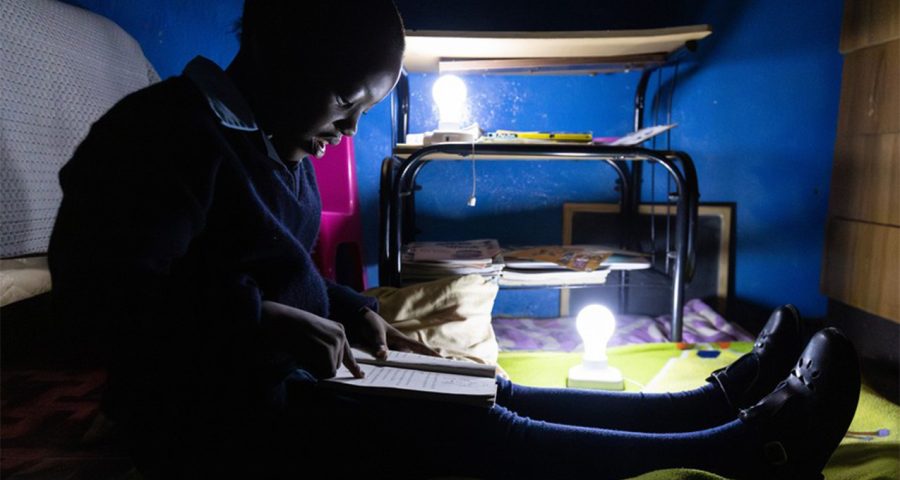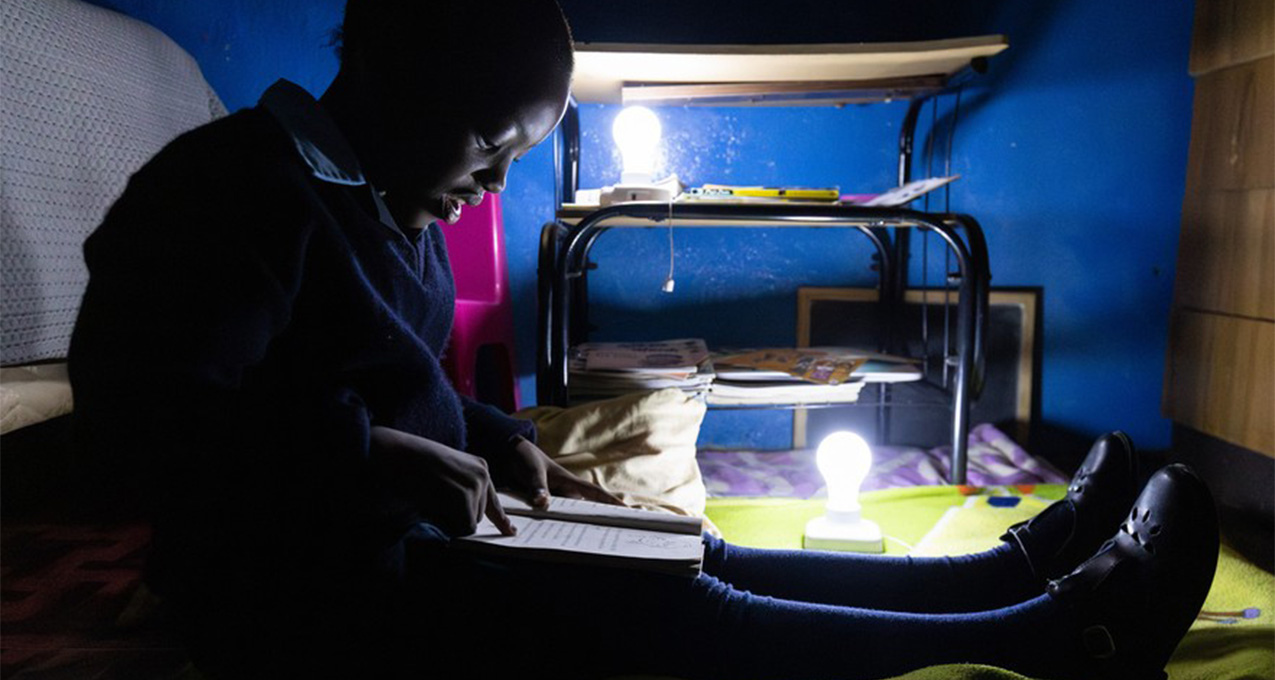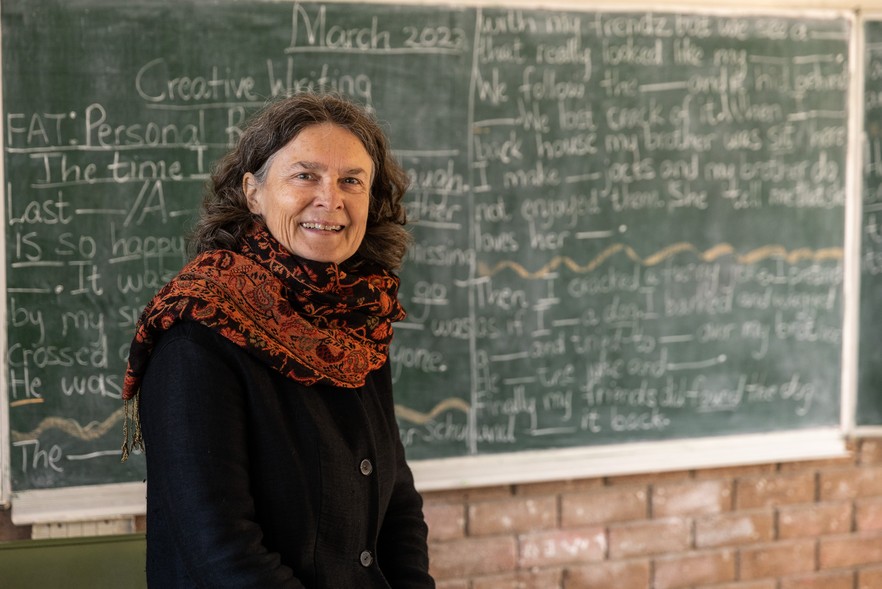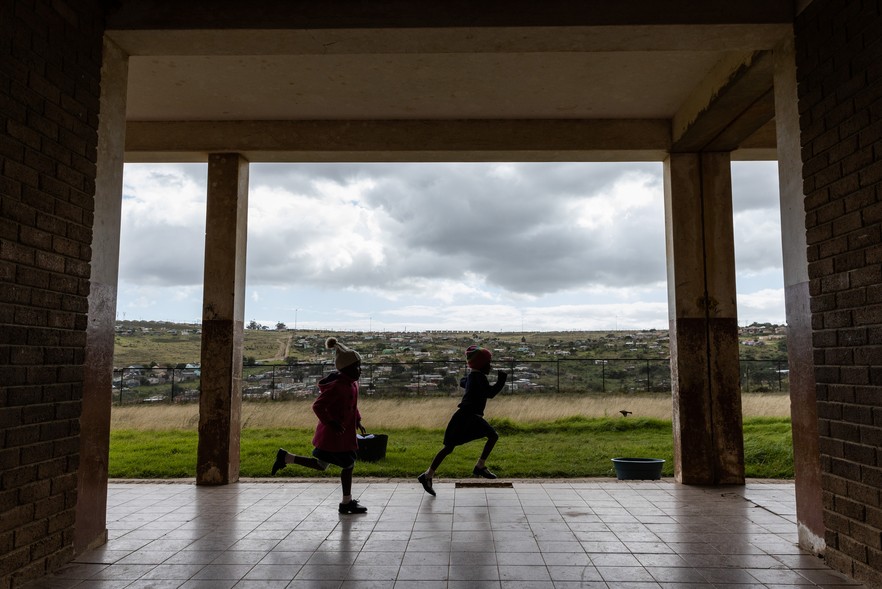
Teachers at schools in Makhanda press on despite failed national reading plan
While South Africa faces a deepening literacy crisis, teachers in Makhanda are battling in overcrowded classrooms. They need more teachers. They need more funds. Learners need one-on-one support. Last week Viewfinder and GroundUp revealed that the Department of Basic Education has failed to implement its National Reading Plan. The country’s literacy crisis is acute: the vast majority […]

While South Africa faces a deepening literacy crisis, teachers in Makhanda are battling in overcrowded classrooms. They need more teachers. They need more funds. Learners need one-on-one support.
Last week Viewfinder and GroundUp revealed that the Department of Basic Education has failed to implement its National Reading Plan. The country’s literacy crisis is acute: the vast majority of children cannot read properly.
Despite promises from the Department of Basic Education and its National Reading Plan, literacy levels have not improved in classrooms. Nearly 80% of Grade 4 learners can’t read for meaning, according to estimates from the 2016 Progress in International Reading Literacy Study (PIRLS). New PIRLS results, to be published this week, are expected to show a significant decrease in the percentage of children who can read properly.
Viewfinder and GroundUp visited two no-fee schools in Makhanda (formerly Grahamstown), a town that is also home to some of the most expensive private schools in the country and is illustrative of inequalities in the education system.
The infrastructure at both schools we visited is in good condition; these are not the dilapidated schools that GroundUp often reports on in the Eastern Cape. The teachers are passionate. Nevertheless, they are battling to teach their learners to read.

Township school Tantyi Primary faces a shortage of teachers that has forced Mandisa Peter to teach both Grade 2 and Grade 3 learners. Peter spoke about how her learners often get sent to Grade 4 without basic reading comprehension ability.
“You feel so sad and frustrated because it reflects what is happening in class. You know that there is an ability in that child. It’s just that she or he didn’t get that one-on-one support,” Peter said.
Tantyi principal Priscilla Glover echoed these sentiments. Glover said the school needs more teachers to give learners a better education.
“For the number of children we have to teach, there is no way you can really get to grips with every child learning to their full capacity when you have got one teacher with two classes,” Glover said.

The number of teachers is dependent on the number of learners, Glover explained. This is despite many of Tanyi’s classes standing empty because the school was built to accommodate a lot more learners than are currently enrolled.
Glover said when she arrived at the school in 2019, she realised township schools often face a lot of unfair criticism.
“Township teachers have a bad press because there is this feeling that teachers in the township schools are underqualified and therefore unable to do the job,” said Glover. “And they are not, they are able, but they’re working in extremely difficult circumstances.”
The country’s ratio of teachers to learners has been worsening in recent years. In poor provinces and non-fee paying schools it is common for teachers to have class sizes in excess of forty, even fifty, students. Many teachers are expected to retire in coming years, without sufficient replacement with new teachers. This is expected to worsen the reading crisis, warned the Reading Panel 2030.
The panel is a civil society organisation set up to monitor the government’s progress towards President Cyril Ramaphosa’s goal of universal literacy for ten-year-olds in the country by 2030. There is almost no chance this goal will be met.

Good Shepherd Primary, a small no-fee paying school, could be mistaken for a private school because it’s in the centre of Makhanda. But many of the children at the school come from nearby townships or disadvantaged backgrounds.
Grade 2 teacher Hope Prince has a passion for teaching reading. Prince, who studied at Rhodes University, was thrown into the deep end when she started teaching. Every year, the classes kept on growing and teachers had to “keep adjusting” to it.
The “reading corner” in her classroom consists of two shelves stacked full of books. A colourful variety of her learners’ crafts decorate the walls. Alphabet posters are pasted everywhere. On one poster it lists reading rules like: “Read quietly” and “Books are your friends, take care of them.”
She spoke about the importance of being able to read for meaning by the time a child finishes Grade 4. She said the challenges with literacy start when the learners leave the foundation phase and have to begin to read for understanding. After the foundation phase, learners have to begin understanding content that depends on reading, such as technology, maths, and life sciences. “Once you’re out of the foundation phase, you no longer learn to read, but now you read to learn,” said Prince.
Literacy is the building block to other subjects, Prince explained. Using maths as an example, picture the importance of the meaning of the phrases “more than”, “between”, “groups of”.
Prince said that the workbooks provided by the DBE are not ideal for her current group of learners. “This group at the moment cannot read for instruction,” she said. When they see the long sentences in the workbooks, they become anxious and they spend most of their time trying to decode the sentences.

A silver lining
There are good news stories though. Lilitha Marangxa, a Grade 4 student at Good Shepherd, reads at a level way above average for her age.
Lilitha lives with her mother and grandmother in Tantyi on the outskirts of Makhanda. They consider her lucky to have gotten into a “good school” like Good Shepherd in the town centre.
Her grandmother, Angela Marangxa, said they worked hard with her during the hard lockdown in 2020 when the schools were completely closed. Marangxa said that she constantly had to go into town and buy more books and word search puzzles.
Marangxa does recognise that Lilitha is an outlier. Showing us her reading corner at her home, consisting of a shelf with books and blankets on the floor, Lilitha said she loves reading. Her favourite book is the children’s classic, Matilda.
Marangxa, a retired grade 1 school teacher, said what concerns her is children who don’t have the same advantages and support as Lilitha does.
“Some of the little ones come from poor homes, poor backgrounds,” said Marangxa. In the township, children may live in overcrowded homes. They may go to school hungry. “When the teacher teaches, they’re hungry… It’s not that they can’t do more,” said Marangxa.
Parents may also work late and come home late. “It’s difficult for them to know what is happening with the child and to help and support the child,” she said.
Marangxa echoed Prince, Peter, and Glover: that there are not enough teachers to help children one-on-one. “It’s a really big concern about reading in South Africa, especially in the foundation phase … When you build a house, you need to make sure the foundation is solid.”
DBE response
Responding to a records request, the national department listed several activities implemented to realise the National Reading Plan in schools.
One of these activities included the Primary School Reading Improvement Programme (PSRIP), aimed at upskilling teachers and subject advisors in teaching reading in primary schools. Another activity included the distribution of Early Grade Reading Assessment (EGRA) toolkits to schools across the country.
The 2023 Reading Panel Report, published in February, brought renewed attention to the literacy crisis in South Africa. It criticised the DBE for the minuscule budget allocated to both the PSRIP and the EGRA toolkits, in comparison to other priority areas which receive billions of rands in ring-fenced funding by the national department every year.
But, the department’s head of research, monitoring and evaluation Stephen Taylor said programme-specific reading budgets are not necessarily the answer to improving reading outcomes. The vast majority of the basic education budget in South Africa is spent at the level of provincial departments of education – where teachers are employed and schools are run.
Taylor pointed to a recent op-ed by Marion Mbina-Mthembu and Penny Vinjevold – former education department officials. The authors argued that before any decision on whether increased funding should be allocated to foundation phase reading in the country, there should be rigorous monitoring on whether provincial education departments and schools are maximising the potential of existing budgets.
We asked for comment from the DBE on criticisms of overcrowded classrooms and a lack of teachers but did not receive a response.
Published originally on GroundUp | By Liezl Human and Daneel Knoetze
